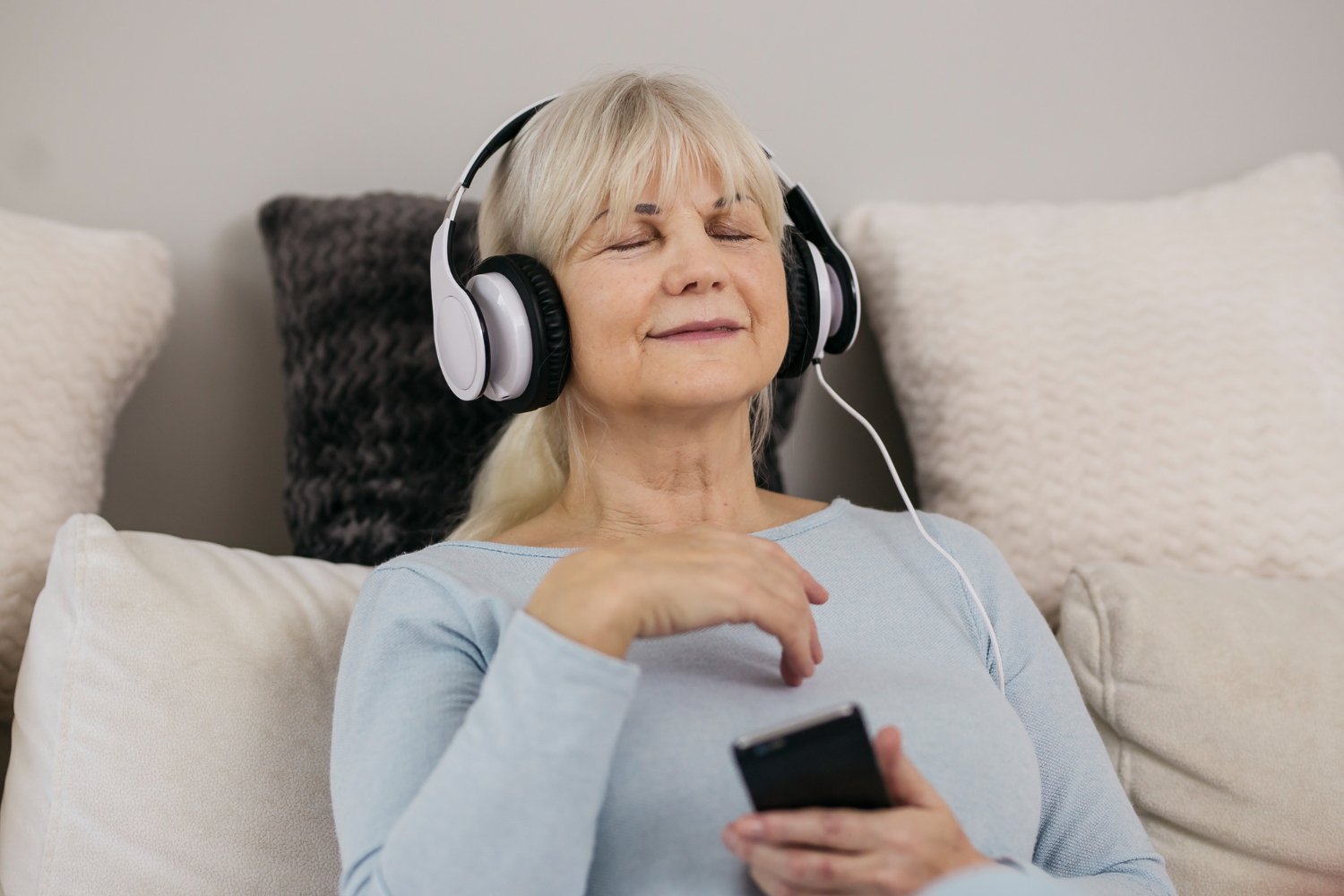What Is the Difference Between Dementia and Alzheimer's?
Credit: Freepik
Dementia is a progressive neurological disorder that affects cognitive functions such as memory, language, problem-solving, and perception, with no known cure. But the good news is music can play a significant role in helping seniors with dementia, as humans have a strong connection to music. Music touches us on a deep level, allowing us to unlock emotions, making dementia music therapy an essential part of dementia care.
Music therapy involves using music to address the physical, emotional, cognitive, and social needs of individuals. It can enrich the life of an individual with dementia, allowing self-expression and engagement, even if dementia has progressed to a later stage.
At SageCare's dementia care home for seniors, we believe that music therapy for dementia can help our residents open up, better communicate their feelings, and relax. Learn more about the relationship between music and dementia to explore its many benefits.
What is Dementia Music Therapy?
Clinical music therapy involves using music in a therapeutic context involving a board-certified music therapist and their client. The holistic approach uses individual strengths and needs to positively impact mood and boost behaviour, cognition, and mobility.
Dementia music therapy allows multi-modal means of verbal and non-verbal expression and is a source of meaningful experiences between a caregiver and an individual with dementia. A Frontiers study found that "music improves cognitive function in people living with dementia, as well as quality of life after the intervention and long-term depression."
Different Forms of Music Therapy for Dementia
There are a few ways in which caregivers can use music for dementia patients to achieve its full potential.
Listening to Music
Listening to music can be a simple and effective way to provide therapeutic benefits for individuals with dementia. There is no specific list of dementia music you can use in this, but it is also best to use calming music that relaxes the mind.
Caregivers can also create playlists of the patient's favourite songs or music from their youth, which can help stimulate memories and evoke positive emotions.
Credit: ucigerma Via Freepik
Singing Along
Singing can be a powerful tool for improving communication and social interactions. Caregivers can encourage patients to sing along to their favourite songs or participate in group singing sessions.
At SageCare, one of our key dementia care goals is to keep our residents engaged and busy to keep their minds stimulated. We use music for dementia patients as a way to relax and unwind by encouraging them to sing.
Playing Musical Instruments
One of the most incredible benefits of music therapy for dementia is that it can be used in many forms. In addition to listening to music and singing along, we also recommend playing musical instruments to help improve coordination and physical function.
If you're looking for a way to encourage dementia music therapy at home, you can provide simple instruments such as drums, shakers, or bells that the patient can play with the music.
Dancing
Music therapy for dementia can go beyond listening to music or singing along to it. It can also offer individuals with dementia an opportunity to groove to their favourite tunes and dance.
Dancing can be a fun and engaging way to provide physical and cognitive benefits for individuals with dementia. Caregivers can encourage patients to dance along to their favourite songs or participate in group dance sessions, as this can also encourage physical exercise and keep seniors engaged.
Credit: seventyfour Via Freepik
Benefits of Music Therapy for Dementia
There is a deep relationship between music and dementia, as music enables seniors to use songs, lyrics, and rhythms to stay busy, express their emotions, and improve their mental health. Consider the following benefits of music therapy for dementia and learn how to use music to help your loved one.
Improves Mood & Reduces Anxiety
Music can evoke emotional responses and be a powerful tool for improving mood and reducing anxiety. In fact, a study of 25 patients revealed that music therapy lowers stress and significantly reduces depression and anxiety in individuals with Alzheimer's Disease.
Music therapy can also help improve social interactions and communication, enhancing the patient's mood and emotional well-being. The specialized staff at SageCare believe music can be a powerful tool for managing dementia behaviours and helping seniors stay calm and relaxed.
Enhances Communication & Social Interactions
Dementia can often lead to social isolation and difficulties with communication. But one of the greatest benefits of using music for dementia is that it can enhance communication and social interactions by providing non-verbal communication that everyone can enjoy. This can help improve the patient's social skills and reduce feelings of loneliness and isolation.
Stimulates Memories & Improves Cognitive Function
When exploring the relationship between music and dementia, it can be helpful to consider its influence on cognitive function. Music can stimulate memories and evoke emotions associated with those memories. According to a multi-modal study by the University of Toronto and Unity Health Toronto published in the Journal of Alzheimer's Disease, listening to favourite music improves brain function in Alzheimer's patients.
The researchers observed structural and functional changes in the neural pathways of study participants, allowing them to understand the relationship between music and dementia. They found that repeated exposure to long-known music improves cognitive function in individuals with Alzheimer's Disease.
Credit: Camandona Via Freepik
Improves Physical Function
Another benefit of music for dementia is that it can also have physical benefits. Dementia music therapy can enhance mobility and coordination, as music therapy sessions often include exercises that involve movement, such as dancing or tapping to the beat of the music. These activities can help improve coordination, balance, and mobility in individuals with dementia, reducing the risk of falls and improving the senior's overall mobility.
At SageCare, we try to utilize the connection between music and dementia by encouraging our residents to participate in various memory care activities for seniors that can help them mentally and physically. Many involve using music, such as dancing to familiar songs and singing along.
Another way music improves physical function is by improving respiratory function. Singing and playing wind instruments during music therapy sessions can help improve respiratory function by strengthening the muscles used for breathing and increasing lung capacity.
Exploring the Benefits of Music for Dementia Patients
SageCare recognizes that music therapy can play a critical role in the life of an individual with dementia. Music therapy is a simple, cost-effective, and enjoyable way to improve our residents' overall health, mood, and quality of life, so we make the most of music at our residence. Contact us to learn more about how music can help your loved one.
Omega has worked as a Recreation Therapist and Team Leader, for Alzheimer’s Groupe Inc in Montreal. Omega holds a degree in Community Recreation and Leadership Training and in Therapeutic Recreation Specialization program from Concordia University.





